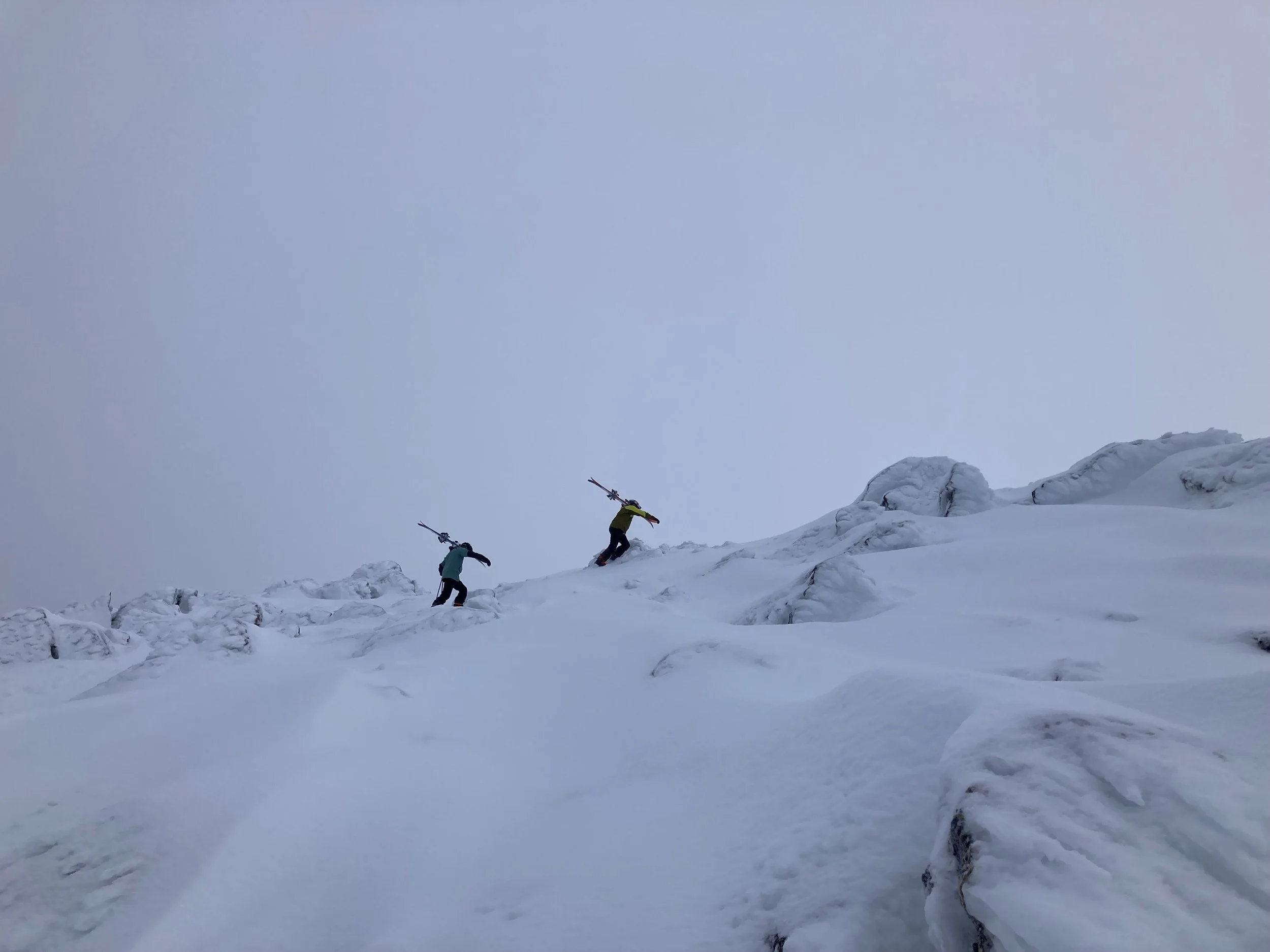Enduring & Growing From Injury Trauma
Growing up as a competitive freeride skier, it was clear from a young age that injuries were part of the deal. They’re so part of the deal in fact, that witnessing or undergoing serious injury has become normalized in the ski world. Desensitized even. I can vouch that most of the freeride skiers I know and love have seen their friends break their bones, tear their ligaments, and even tumble unconscious down the mountain. It's a trauma that many of us have thrown under the rug, because if we dare face the severity of what we’ve felt and seen, the question arises, is it worth it?
I’m here to say absolutely, it’s worth it… If dealt with correctly. It starts with full acceptance of the situation, then a whole lot of mind and body work. High impact injuries are a physical and mental trauma, and should be treated as such.
Our physical bodies are capable of healing at a fairly rapid pace, which is incredible and so important, but if we block out the mental trauma of a serious injury, it’s damn near impossible to heal fully from the event. The mind, body, and spirit are closely interconnected. Focusing on the power of that connection is life changing when it comes to healing and getting back to where you want to be on skis.
I’m writing this as I recover from my second season ending knee injury. Having gone through more than a year of rehab after a full knee blowout when I was 17, I can easily say that my perspective on the world changed immensely due to that experience.
Looking back, there were a lot of things I could have done better. I had built my whole life and identity (or so I thought at the time) around sports. So when I was out for a long period of time, I convinced myself I couldn’t find real happiness until I was skiing again. I let that injury destroy my spirit for a few months there, and I think those negative thoughts were closely connected to some of the struggles I had with pain management.
When experiencing the inevitable pain of a knee injury, it’s normal to get anxious about that pain. Personally, my mind used to immediately go to the fear that something went wrong. “I re-tore my ACL”, “I ruined my progress”, stuff like that. Letting my thoughts wander to that place did nothing but increase the physical pain.
As I recover from this second knee injury, I’ve incorporated mindfulness into my rehab plan. It stands on the same pedestal as my physical therapy. Everytime I start feeling those panicky thoughts tied to pain, I pause. I take a moment to breathe, feel the earth beneath me, and adjust my perspective.
Injuries suck, there’s no denying that. But if you do a sport where they’re inevitable, it’s worth focusing on the opportunities for mental growth that can come from them. There’s a book I think everyone who’s endured a serious injury should read: The Obstacle is the Way by Ryan Holiday. He talks a lot about changing our perspective on curveballs that come our way. If you’re able to perceive a “problem” as an opportunity, you WILL flourish. Humans are capable of a lot of things, but mindwork may be the most powerful potential of all.
Healing from an injury means you're left with endless time to grapple with who you are. I’ve always coped with intense emotions through movement. I’d go sprint in the woods or straight line something on my skis. But when your body prevents you from doing that, you’re left to absorb the emotions fully. It can be painful and paralyzing and tedious, but through the years I’ve taught myself to understand what it really is: liberating.
For a limited amount of time, denial and ignorance can be bliss. To feel fully all the time is exhausting, but being able to completely acknowledge emotions means you can release them. It’s healing and it’s beautiful, and all it takes is sitting with yourself and allowing the pent up energy to run its course.
When you’re injured, it’s natural to focus on the fact that you’re not doing what you love, but you have to push past it. You have no choice but to push past it. You have this rare period of time to explore life from a whole new angle. Go take an art class, or learn to play the guitar, or meditate, or hang out with dope people you may have never connected with otherwise. Feel the sun on your face and take a breath.
As Ryan Holiday says, “Remember that this moment is not your life, it’s just a moment in your life. Focus on what is in front of you, right now.”
That’s not to say that you should lose touch with what this injury took from you. Veer off into new waves of life, but keep your goals by your side at all times. Through all of this physical and mental growth, skiing has consistently stayed on my mind.
Soon, I’ll be back to doing the very thing that frees my spirit and breaks my bones, and so will you.

